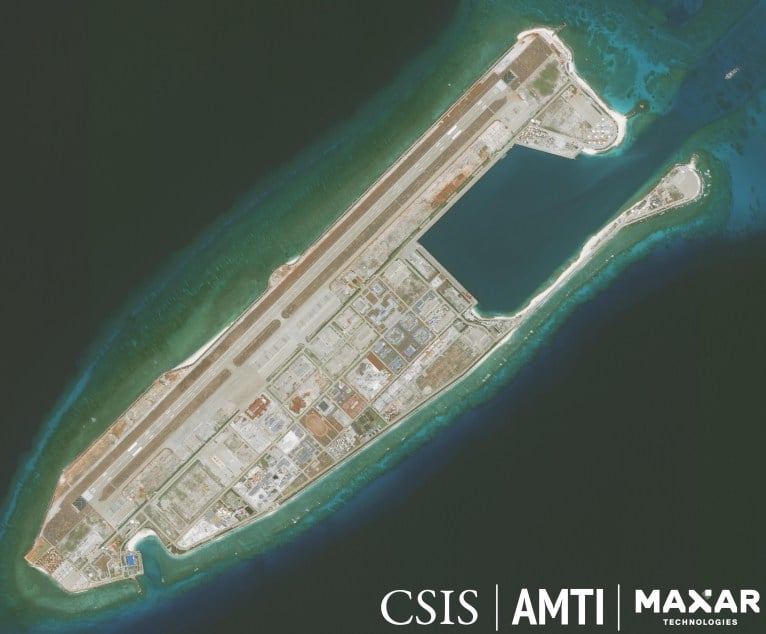
China is tightening its grip on disputed claims in the South China Sea by beefing up its military capability and planting the seeds of long-term habitability on the artificial islands at the core of its regional economic influence strategy.
Last week, Taiwanese officials warned of the threat posed by a Chinese air defense identification zone (ADIZ), according to press reports, including an account in the South China Morning Post. China is likely years away from being able to control the region, but the leadership in Beijing continues working to establish a framework that would be necessary to eventually assert control of its claims.
As the U.S. Navy runs freedom of navigation operations in the South China Sea, China’s strategy for backing its claims to expand its regional economic influence is taking shape in the air and on the ground.
For years, China has hinted at its intent to declare an air defense identification zone over the South China Sea. Various landmasses, including disputed and artificial islands, form the basis of China’s so-called “9-Dash Line” claim to the economic control of the South China Sea up to 1,000 miles away from mainland China. International law does not support these claims.
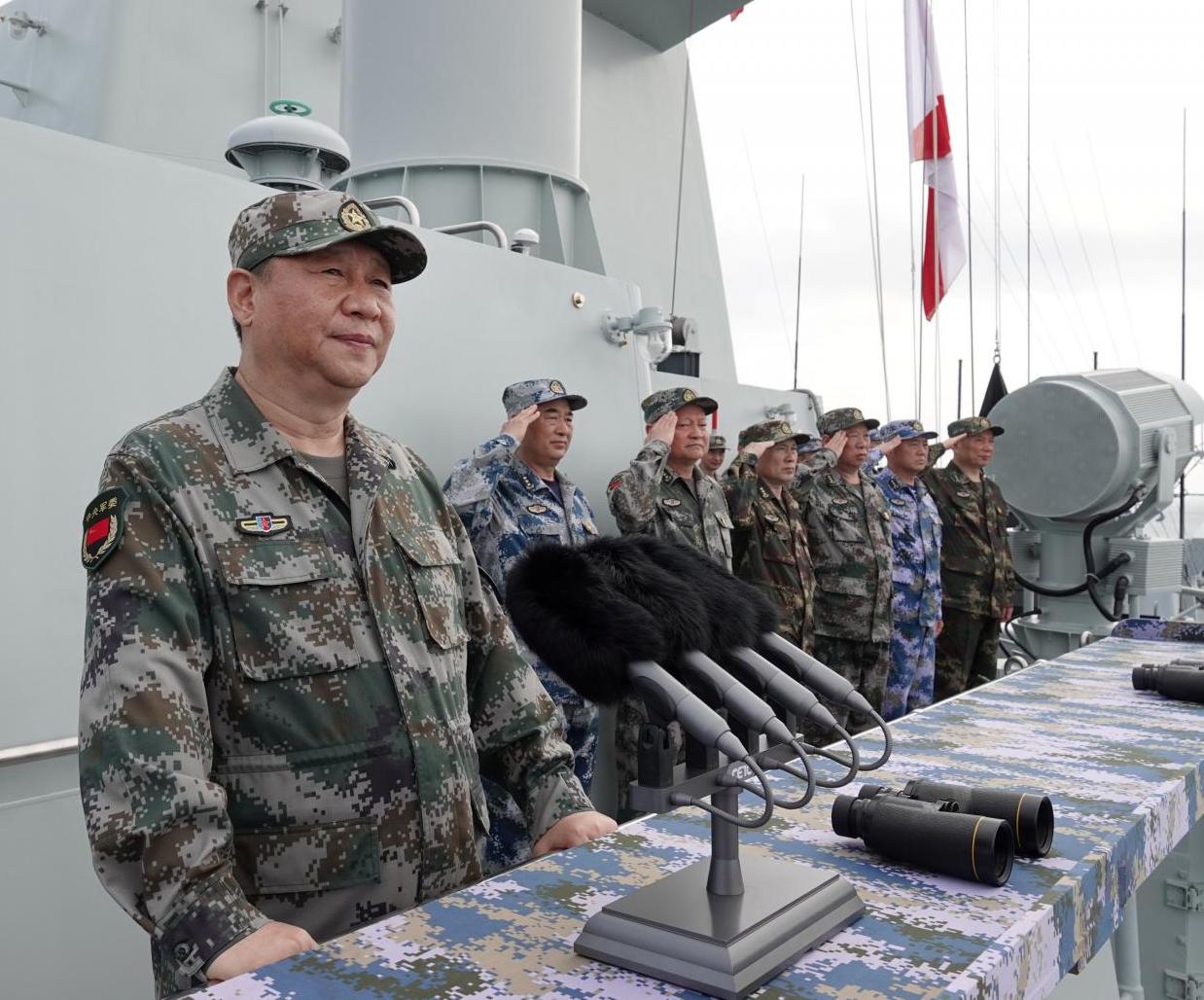
However, while other nations have declared ADIZs over portions of the South China Sea, experts think China is not yet ready to declare a zone over the region. Politics are a concern: China’s leadership is leery of making moves too far outside of the international rules-based order.
More crucially, logistical and technological concerns are probably limiting China’s ability to declare such a zone, Greg Poling, a senior fellow for Southeast Asia and the director of the Asia Maritime Transparency Initiative at the Center for Strategic and International Studies, told USNI News.
China first occupied the Paracels in 1974, when its military seized a South Vietnamese garrison occupying the western islands. Since then, China has built military installations on the islands, which Vietnam and Taiwan also claim, according to the CIA World Factbook.
The Spratly Islands are further from mainland China. The roughly 100 islands and reefs that are part of the Spratly chain are claimed by China, Taiwan and Vietnam. Malaysia and the Philippines claim a portion of the islands. Rich fishing grounds and potential gas and oil deposits are at the center of the claims, according to the CIA World Factbook.
“The reason for holding off has always been that they wouldn’t be able to enforce it, at least not over the Spratly Islands,” Poling told USNI News. “They are too far from China, and Beijing had no airpower based on them.”
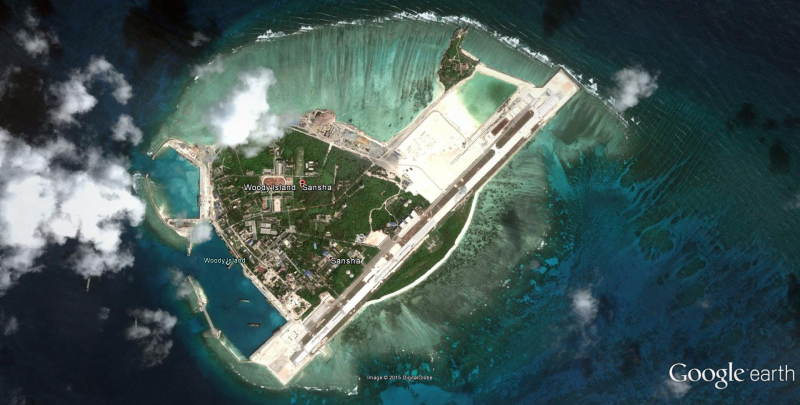
China is not able to enforce an ADIZ it previously declared in the East China Sea, Poling said. China has not been able to contest military aircraft from Japan, South Korea and the United States from operating in the region claimed by China.
In the South China Sea, the Chinese military is building an infrastructure to support military assets operating in the region, Poling said. For example, three air and naval bases at Fiery Cross, Subi and Mischief Reefs could theoretically provide China the airpower to enforce an ADIZ.
“And we do expect to see the first deployments of combat aircraft to the Spratlys sooner or later—they didn’t build 72 fighter jet hangars for nothing,” Poling said. “But it is still hard to see how they could actually enforce the ADIZ—it would be an enormous undertaking to actually maintain air power out there without it rusting away in the conditions.”
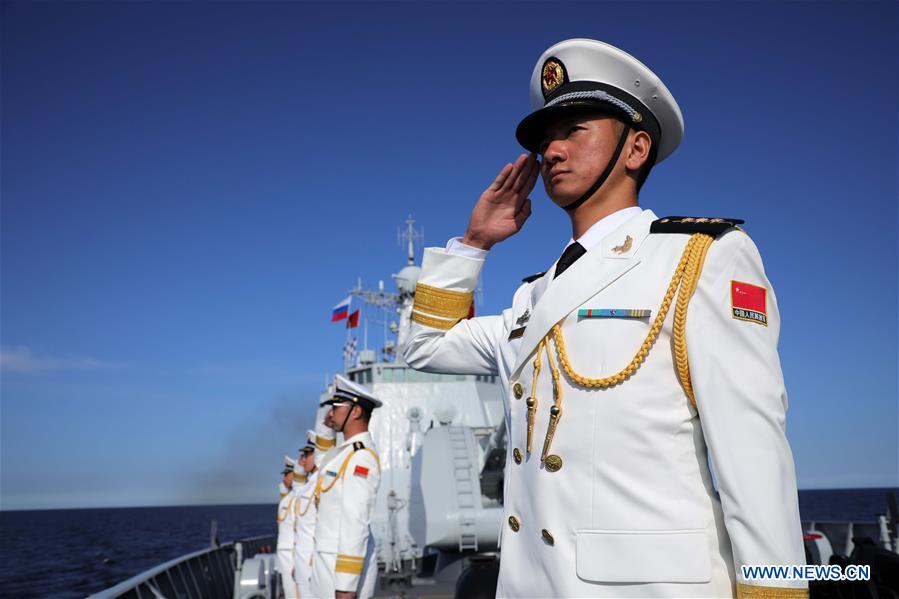
One idea, Poling said, is China could start by declaring an ADIZ specific to the Paracel Islands. Last week, USS Mustin (DDG-89) conducted a freedom of navigation operation past the Paracel Islands. Mustin’s FONOP was the latest in a series of operations this spring intended to counter China’s reach into international or contest waters.
The significance of the Paracel Islands to China’s long-term claims is growing – and for reasons beyond just building new military bases, said retired Indian Navy Capt. Sarabjeet Parmar, the executive director of the New Delhi-based National Maritime Foundation. Parmar spoke Wednesday during an online panel discussion hosted by the Stockton Center for International Law at the U.S. Naval War College.
“The latest thing is growing crops on the Paracel Islands,” Parmar said. “But to grow crops, first of all, you have to have soil, which means there’s some thought of an agriculture revolution taking place on the Paracels which permits this. And of course, you need to have water.”
The People’s Liberation Army Navy grew about 1,653 pounds of bok choy cabbage, lettuce and baby Chinese cabbage on the Paracel Islands’ sandy beaches, according to a recent account in The Global Times, the Chinese Communist Party’s tabloid.
Chinese officials touted the experiment run by Chinese naval officers and university researchers as a way to support communities on the islands, according to the report.
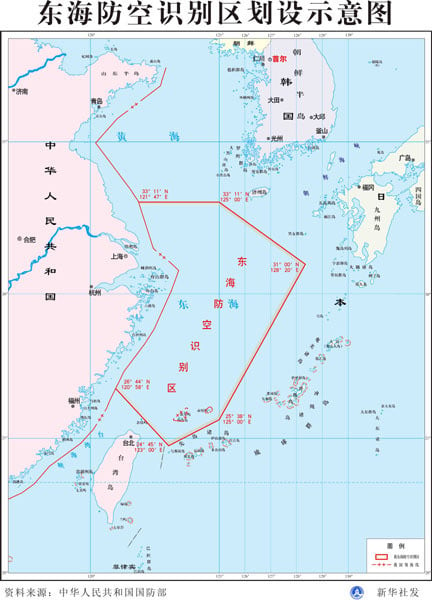
If the islands can support agriculture, then it’s feasible they could create an export market, Parmar said. Creating a market is likely part of a long-term Chinese strategy to use the United Nations Convention on the Law of the Sea (UNCLOS) to back up claims to the islands.
Article 121, the Regime of Islands, of the UNCLOS, states, “Rocks which cannot sustain human habitation or economic life of their own shall have no exclusive economic zone or continental shelf.”
“The naming of features, the growing of crops, you know, it’s all a stamp of sovereignty,” Parmar said. “And over a period of time, when it becomes a normal accepted custom, the strength of maybe China’s argument, or the backbone of China’s argument, will get strengthened.”
As China’s experiments with creating habitable landmasses continue, Parmar said the next 12 months will be crucial in terms of maritime stability in the region. As nations emerge from the COVID-19 pandemic, Parmar said China would likely gain a better sense of how far it can push its claims in the region.
As for declaring an ADIZ in the region, Poling said the chatter coming from Beijing is “just part of the chest-thumping of China’s Wolf Warrior diplomats.”
On the other hand, Poling said, “they could actually go all the way and declare one farther south even knowing that it is just for show. Just because something is a really bad idea is no guarantee that Beijing won’t greenlight it, given the nationalism and hyper-sensitivity it is displaying amid the COVID-19 pandemic.”





